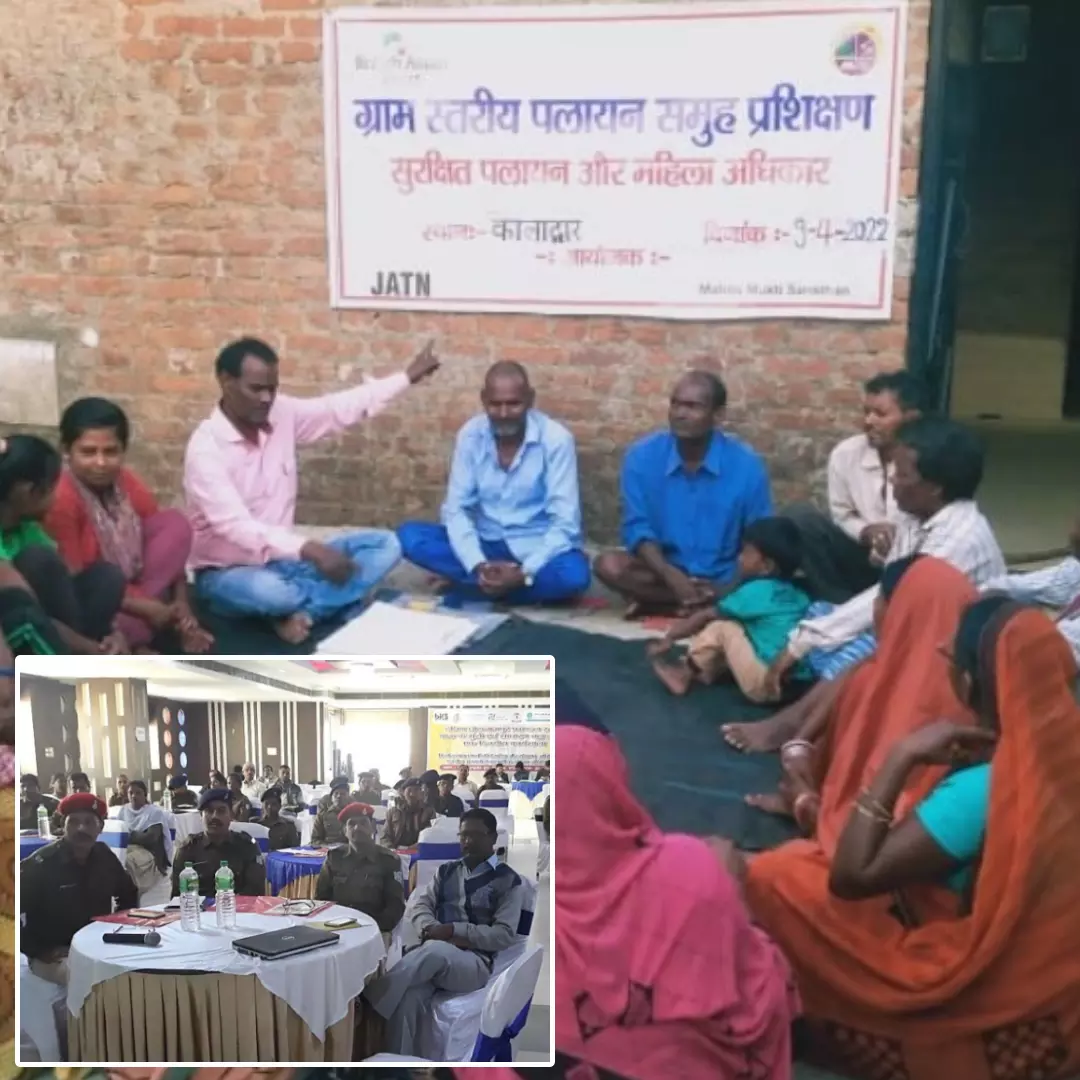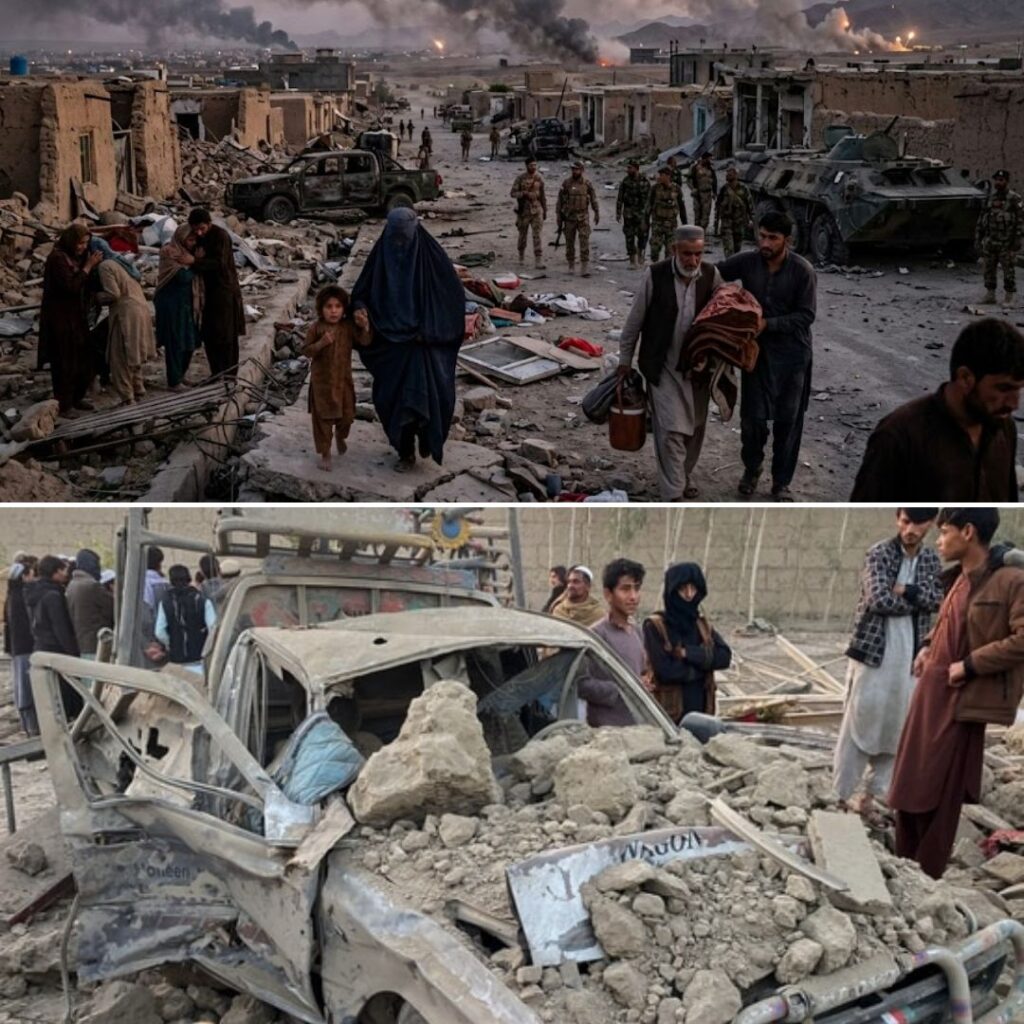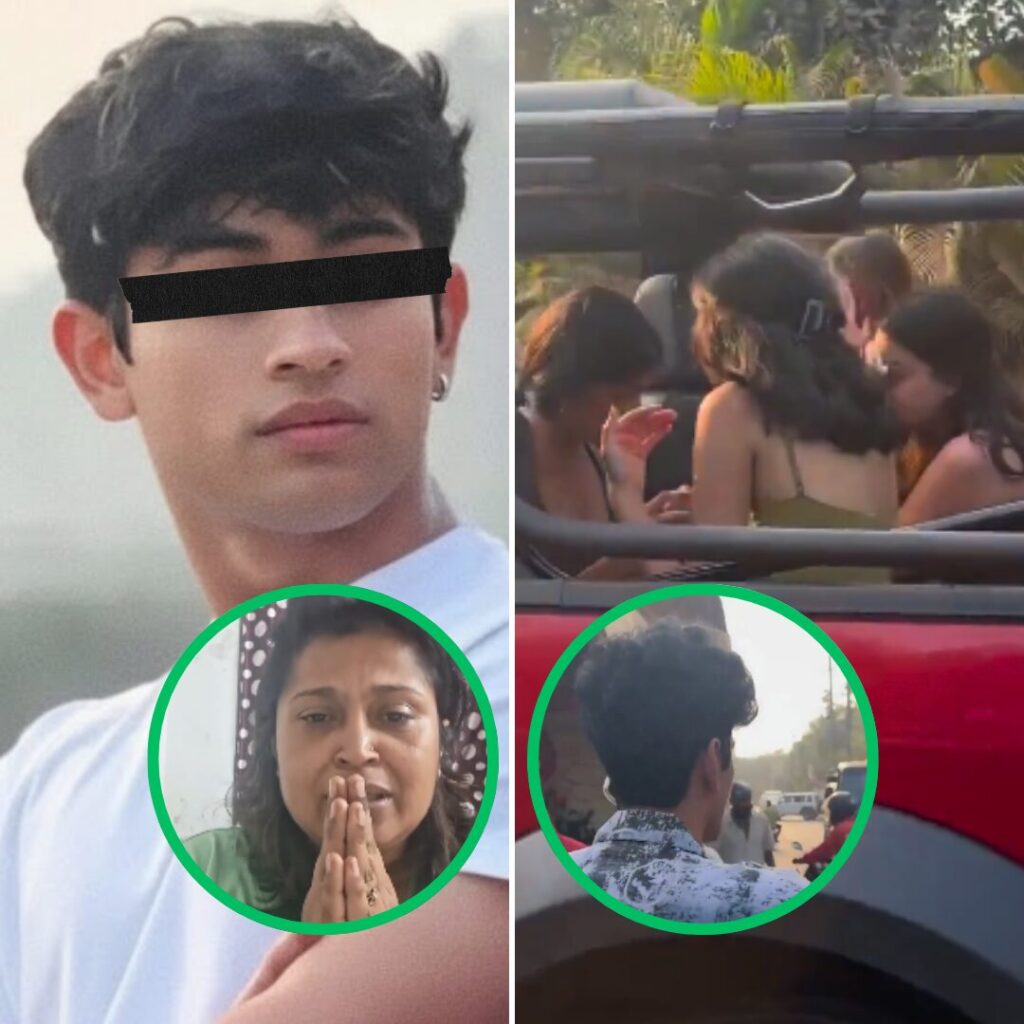“The owner used to give me one ‘roti’ to eat throughout the day, and he also used to beat me,” says Lilmuni Hembrum, who was trafficked to Delhi on the false pretext of giving her a job. She worked for four months, and when she asked for her wages, the employer informed her that the money had already been given to the person who brought her to Delhi, and he won’t pay her. That’s when she discovered she was sold by the person who brought her there. Lilmuni states that she was forced to do household chores, cook, wash utensils, and clothes in the house where she was held captive. After being refused her wages, she somehow managed to escape from her employer’s clutches and return to her village.
Sunita Hembrum’s story is similar to Lilmuni’s. After a fight with her husband, she went back to her parental house, where a relative lured her with the promise of a job offer paying Rs 5000 per month along with food. She was trafficked to Delhi in November 2015 and sold to her employer Mukesh Mandal, who assaulted her. Mukesh Mandal took away cash of Rs. 300/- from her and her Aadhar Card, photo, and phone numbers of different persons to keep her captive. “She was given food once in two days, and acid was sprinkled on her face,” says Sonalal Murmu, husband of Sunita, describing her condition upon returning from Delhi.
Earlier this year, both Lilmuni and Sunita celebrated as Jharkhand courts sentenced their traffickers to prison. Both women belong to the Girdih district of Jharkhand where the session court on May 31st sentenced the traffickers – Pawindra Kisku, Nichit Muni, and Francis Kisku – to 10 years in jail, the highest punishment as per section 370 of Indian law
Lilmuni and Sunita belong to the Giridih district of Jharkhand and have recently received justice. On May 31, 2023, the Giridih session court sentenced the traffickers – Pawindra Kisku, Nichit Muni, and Francis Kisku – to 10 years in jail, the highest punishment as per section 370 of Indian law. The convicted individuals had previously taken away Manisha Murmu, Nisha, Badki Devi, Barki Devi, and Sona Muni to Delhi and sold them. All the women belong to the Santhal tribe, a scheduled caste. The Santhals of Jharkhand are the lowest-income group, living in abject poverty. The poverty and lack of jobs are what compel people in the region to seek employment outside Jharkhand.
Despite primary informants and witnesses turning hostile in the above cases, the convictions were achieved, making Jharkhand a model state for other states to follow. According to NCRB data, Jharkhand has the highest conviction rate in the country when it comes to human trafficking. While the national average is 16 percent, Jharkhand outperforms other states with a conviction rate of 84.2%. As per the National Crime Record Bureau (NCRB) latest report, the conviction rate in India was 16 percent in 2021, despite police filing charge sheets in 84.7 percent of the total 2,189 cases. Jharkhand had 92 cases of human trafficking in 2021, out of which 52 cases were charge-sheeted, 16 cases were convicted, and three were acquitted or discharged by the court. With 16 convictions out of 19 cases with completed trials, the conviction rate was 84.2 percent. For all India, 32 cases were convicted, and 169 cases were acquitted or discharged. About 60% of the human trafficking victims in Jharkhand are below 18 years, with boys accounting for 58 and girl victims 88.
The highest number of human trafficking cases were in Telangana (347), Maharashtra (320), Assam (203), Kerala (201), and Andhra Pradesh (168). However, their conviction rates in human trafficking were 0%, 25%, 0%, 5%, and 9.4%, respectively. Several other states and Union Territories had a zero percent conviction rate, the report said.
As the tribal state has emerged as fertile ground for the trafficking of women and children for forced labor and slavery due to extreme poverty – 42.16% of the people in the state are poor as per NITI Aayog – the higher conviction rate gives hope.
“There was no awareness about human trafficking when Jharkhand got separated from Bihar. People, including police and politicians, didn’t consider it a problem for the tribal communities living here. Political leaders just saw it as an opportunity for people to work in metropolitan cities, overlooking the exploitation part. Then, a study conducted in 2003-2004 by the Department of Women and Child Development & Social Welfare with support from CID and NGOs highlighted that 44,000 girls from the state were victims of human trafficking. This opened the eyes of the state leadership and led to increased efforts against human trafficking,” says Sanjay Mishra, who has been working against trafficking for the past two decades and is the founder of Bal Kalyan Sangh, an NGO associated with rescuing victims and convicting culprits.
In 2009, a transit home was set up in Delhi with toll-free numbers for victims to reach out to. The information started coming in, and rescue operations by NGOs with the help of Delhi police began. However, the bigger problem was that the state departments, police, and judiciary of Jharkhand were not aware of the issue of human trafficking and the laws related to it.
Then, the development sector focused on creating awareness about it in collaboration with the Central Investigation Department of the state. From top officials to lower-ranked officers of both the Judiciary and Police, everyone was made aware of the laws and the need for policies against trafficking.
Sanjay Mishra added that the effort put in by Non-governmental organizations like Sahiya, Vigyan Foundation, People’s Cultural Centre, Against Trafficking & Sexual Exploitation of Children, India (ATSEC India), Bal Kalyan Sangh and others.
The welfare department, through regular workshops and training for over two decades, has resulted in the police department being attentive and prompt in terms of filing FIRs and paying attention to calls from NGOs regarding cases of human trafficking. Similarly, regular workshops and seminars are organized for the Judiciary and Bar Council as well, as they are the first to be involved in investigations and convictions.
“An increase in legal awareness among the common people, due to the efforts of NGOs and civil society, and a sensitivity and understanding of the horrors girls go through, have made people sitting in district courts actively ensure that those involved in human trafficking are punished, reducing the number of trafficking cases and increasing sensitivity among advocates, thanks to continuous trainings by civil society organizations,” says Baidyanath Mahto, a social worker and a member of Jharkhand Anti-Trafficking Network(JATN), a network of 13 NGOs working in 13 districts of Jharkhand, covering 130 villages, focusing on providing support to trafficking cases and women’s rights violations.
Baidyanath emphasizes the campaigns being run by NGOs in villages where most migration happens so that those who migrate know about their rights and can seek help from the law when needed.
NRishi Kant, Executive Director member of Shakti Vahini, an NGO leading the fight against human trafficking across India, says a conviction in a trafficking case is a long-fought process. It requires a combined effort of police officials who should be diligent with filing FIRs and presenting the victims to the local magistrate, NGOs who are often first to hear about trafficking and are often the coordinating centre between the victims, investigating teams and Judiciary.
He emphasizes the role of the Police and how a few individuals have shaped the way convictions in trafficking cases are happening now. In 2012-13, a significant raid led to the rescue of 80 women victims, and then a thorough investigation was carried out – identifying those who transported, lured, and brought the girls to the cities, those who paid for the tickets, and those who kept them in Delhi or Mumbai. Every aspect was investigated through raids across the country, leading to the conviction of the accused – setting the tone for future investigations. The entire operation strengthened the investigative capacity of the police. Under the leadership of Anurag Gupta, IG of CID, the police investigation was overhauled, and the Jharkhand police put a lot of effort into the investigation, ensuring that cases were brought to court properly, witnesses were strengthened, and focus on circumstantial evidence led to convictions. Forensic experts are now being called to collect evidence in human trafficking cases so that the culprits are convicted and their networks are busted. The strengthening of Anti-human trafficking units across all states is another important factor. There is a mandate of zero trafficking and zero tolerance from top officials.
Sanjay Mishra, however, also points out where more work is required to be done. “509 girls were rescued from New Delhi by us during the corona period, i.e., between 2019 to September 2021. While in Delhi, police took charge of all the rescue operations, but once they returned to Jharkhand, only 45 FIRs were registered against the traffickers. For most cases, FIRs weren’t registered, how can the judicial process begin? The concerned departments immediately rehabilitate the girls once they return, or they return to their homes. We in the development sector are trying to work on it, but the ones who traffic are often relatives of the girls, and thus, the family doesn’t want to take action.” Also he adds that there is no tracking mechanism for the girls who are rescued increasing the chance of double trafficking.
Shalini Samvedna, another member of the JATN network, talks about how strong civil society organizations have created awareness among the public and the police. “Our network is so strong that if we see that action is not being taken in a particular case, we shake the system,” says Shalini. When asked if the police are prompt in human trafficking cases, she states that both the police and departments are prompt, but it also requires active citizenry. “If citizens aren’t aware, and the victim’s family doesn’t push the system, how will the government and police understand the severity of the problem,” Shalini added.
Shalini questions if the convicted traffickers ever serve full imprisonment. “I often see culprits escaping the law as most of the cases don’t reach the court because victims and their families don’t want to pursue the cases due to societal shame associated with it. It becomes really hard for them to rehabilitate in society as a social stigma is attached to girls who return to their homes.”
“Data doesn’t reflect the ground situation. The small fishes get caught, and bigger fishes are let off,” adds Shalini. However, she also emphasizes the hand-holding done by civil society organizations on trafficking for government institutions, lawyers, and judges. The setting up of Baal Mitra Police stations in vulnerable areas and giving trafficking cases priority to bureaucrats and police officials to handle has borne fruit.
“But a lot of work needs to be done, especially in addressing the patriarchal outlook on such cases, as the victims are often blamed for being trafficked,” Shalini added before putting the phone down.
(This story was produced with the help of Thomson Reuters Foundation. The content is the sole responsibility of the author)
https://thelogicalindian.com/h-upload/2023/09/06/500x300_233258-web-59.webp
Human-interest
2023-09-06 12:31:55.0
Jharkhand Has Highest Conviction Rate For Human Traffickers: What Is It Doing Right?













